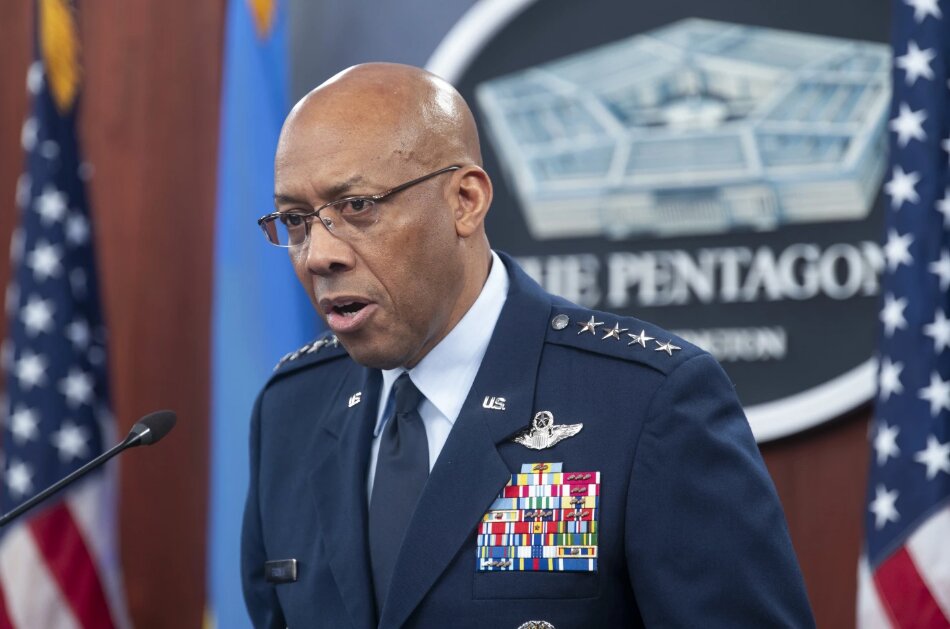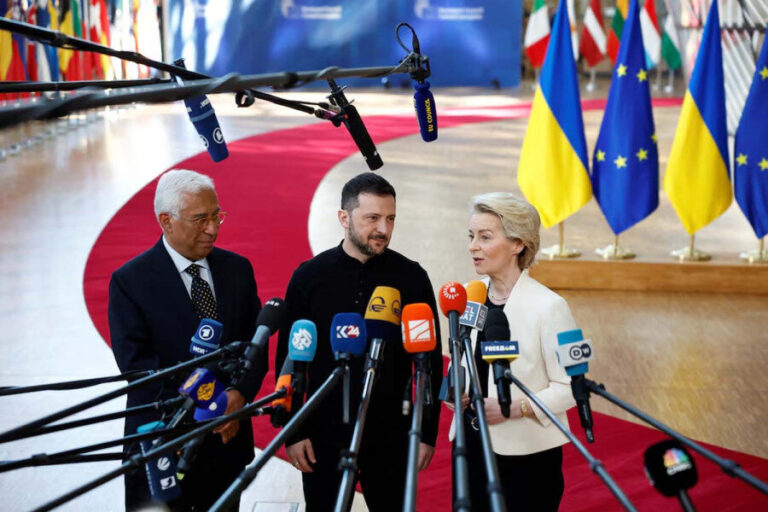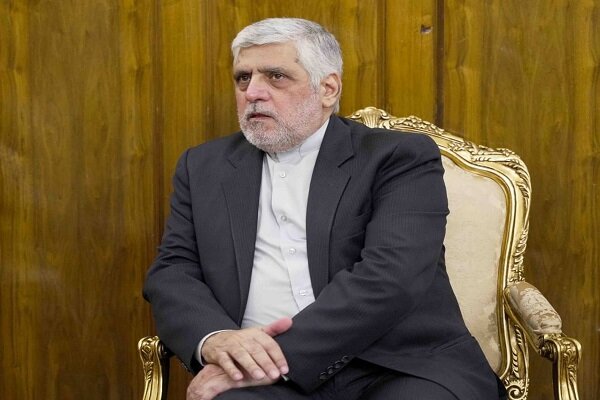Trump Shakes Military Leadership: Fires Joint Chiefs of Staff Chairman in Bold Move
In a surprising turn of events, President Donald Trump has dismissed Air Force General CQ Brown Jr. from his position as the chairman of the Joint Chiefs of Staff. This significant decision comes amidst a broader initiative led by the defense secretary to eliminate military leaders who advocate for diversity and equity within the armed forces.
General CQ Brown, a trailblazing fighter pilot and esteemed officer, has had a remarkable career spanning over 40 years of dedicated service to the nation. His leadership and commitment have made a lasting impact on the U.S. military, and his sudden removal raises questions about the future direction of military leadership.
In a statement shared on social media, Trump expressed gratitude for General Brown’s service, saying, “I want to thank General Charles ‘CQ’ Brown for his over 40 years of service to our country, including as our current Chairman of the Joint Chiefs of Staff. He is a fine gentleman and an outstanding leader, and I wish a great future for him and his family.” This acknowledgment, however, contrasts sharply with the actions taken against him.
Background on General CQ Brown Jr.
General CQ Brown made history as the first African American to lead the Air Force. His career is marked by several notable achievements:
- Brown served in various leadership roles, including as the commander of the Pacific Air Forces.
- He has been a strong advocate for incorporating diversity within military ranks, promoting an inclusive environment.
- His leadership style emphasized teamwork and collaboration, which earned him respect among peers and subordinates alike.
The Context of the Dismissal
This dismissal is part of a broader strategy by the Trump administration to reshape military leadership, particularly targeting those who support initiatives related to diversity and equity. Key points to consider include:
- The Trump administration’s focus on aligning military leadership with its ideological beliefs.
- Concerns from critics that this move undermines the military’s commitment to inclusivity and representation.
- The potential impact on military morale and the message it sends to service members regarding diversity initiatives.
Many military experts and analysts have expressed their concerns regarding the implications of this dismissal. The move has been interpreted as an attempt to silence voices advocating for progress within the military, particularly in areas related to race and gender equity.
Reactions to the Dismissal
The decision to remove General Brown has sparked a wide array of reactions from various stakeholders:
- Military Officials: Some military officials have voiced their disappointment, arguing that General Brown’s leadership was crucial for fostering a diverse military culture.
- Political Leaders: Bipartisan criticism has emerged, with some politicians condemning the action as detrimental to the military’s integrity.
- Civil Rights Advocates: Activists have expressed outrage, viewing the dismissal as a setback for diversity efforts within the armed forces.
The Future of Military Leadership
As the dust settles on this significant leadership change, the future of military leadership remains uncertain. The implications of this dismissal extend beyond General Brown and could have lasting effects on the military’s approach to diversity and inclusion. Key considerations include:
- Leadership Transition: Identifying a successor who aligns with the administration’s goals while also maintaining the military’s commitment to diversity.
- Impact on Service Members: The potential for decreased morale among service members who value diversity and inclusivity.
- Long-term Changes: The necessity for a strategic approach to ensure that diversity initiatives are not sidelined in future military leadership decisions.
General Brown’s removal serves as a pivotal moment in the ongoing dialogue about diversity in the U.S. military. As the nation grapples with these changes, it remains crucial to examine the broader implications for the armed forces and the values they uphold.
Ultimately, the decision to dismiss General CQ Brown Jr. from his role as chairman of the Joint Chiefs of Staff raises important questions about the future of military leadership and the commitment to diversity and equity within the ranks. As the military navigates this transition, it will be essential to prioritize the values that strengthen its foundation and foster an inclusive environment for all service members.






